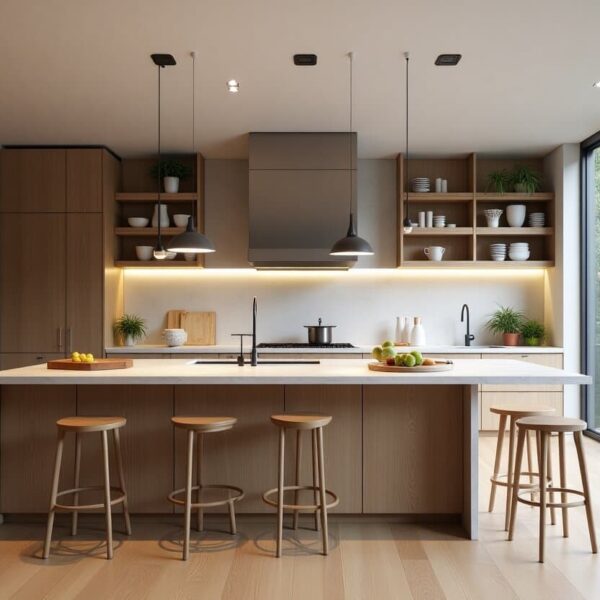China dominates global cabinet manufacturing with unbeatable prices (up to 50% lower than local suppliers) and flexible customization. Yet cultural gaps and legal loopholes turn contracts into minefields. A well-crafted, ironclad contract is your only safeguard against delays, quality disputes, and service omissions. Many buyers, from overseas homeowners to seasoned designers and contractors, get caught because they overlook critical “red flags.” This guide will equip you to spot these pitfalls and truly protect your investment.
Know Your China Custom Kitchen Cabinets Supplier
Before diving into the nitty-gritty of your China Custom Kitchen Cabinet order, you must know exactly who you’re dealing with. A major red flag is when the contract uses vague or incomplete company names, generic contact information, or lacks clarity on who holds the ultimate responsibility. you need to verify that the entity you’re paying is legitimately registered and accountable. To protect yourself, thoroughly verify all details. Ensure the supplier’s legal name precisely matches their business registration.You should also watch out for suppliers who use abbreviated names or provide only email contacts — this lack of transparency often hints at a deeper issue. Run a quick check on business directories or ask for their license copy to confirm their legitimacy.

Decoding Hidden Traps
This is where most buyers get burned. Don’t let these common clauses or omissions catch you off guard.
Ambiguous Specifications & Material Substitution
When it comes to specifications and material substitution, a significant red flag appears if your contract broadly describes materials like “high-quality wood” or “standard hardware” without specific brands, models, grades, or detailed finishes. Even worse, it might include an innocent-looking “equal or better” clause, allowing the supplier to swap materials without your explicit consent. This carries the potential risk that you’ll receive lower-quality materials than expected, or the finished product simply won’t align with your vision. Imagine expecting Blum and getting a generic alternative! To protect yourself, demand pinpoint accuracy. Insist on the contract explicitly listing every component’s brand, model, series, color code, finish type, and grade (e.g., “Blumotion concealed hinges,” not just “soft-close hinges”). Any material substitution must require your prior written consent, with detailed specifications of the proposed alternative. A reliable China kitchen cabinets supplier should be willing to list exact brands, models, thicknesses, color codes, and finishes.
Have a project in mind? Send a message.
Get the catalog for free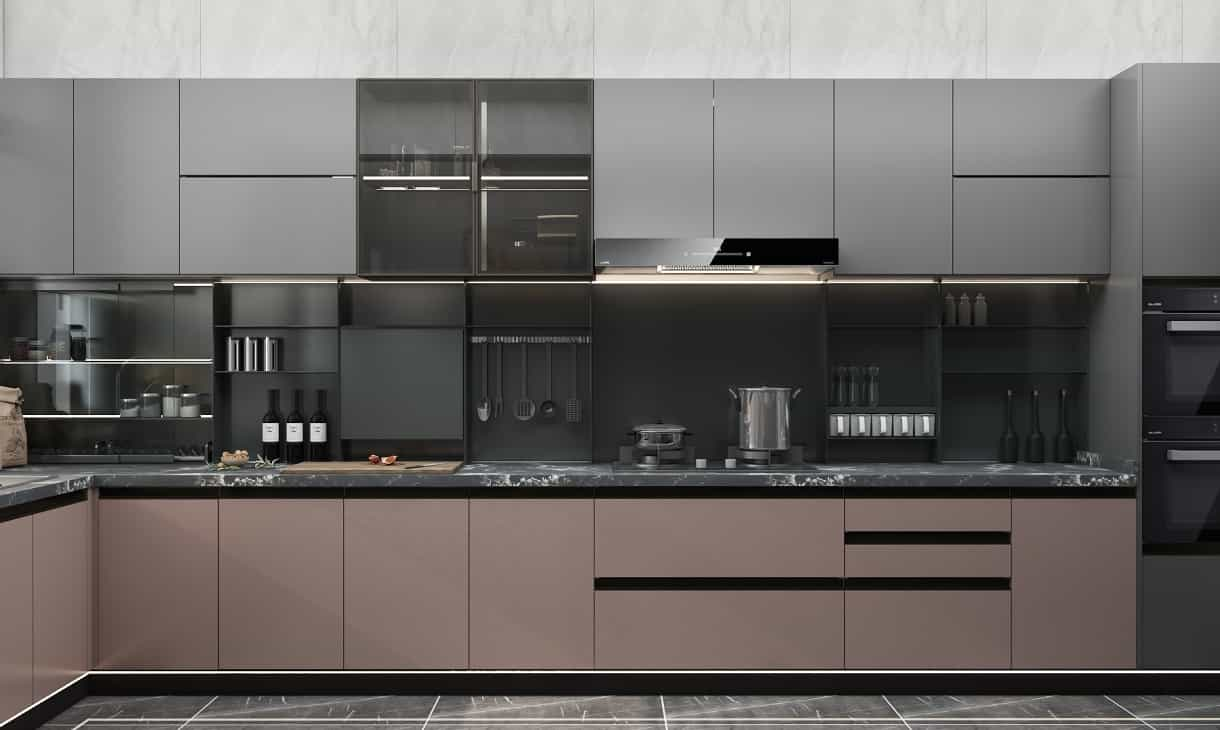
Unclear Scope of Work & Included Items
Next, beware of unclear scope of work and included items. If the contract fails to clearly define what installation services are included (e.g., sink cutouts, handle installation, edge banding, specific functional hardware), ambiguity can lead to frustrating disputes over covered services, resulting in unexpected charges or incomplete work. You might find yourself paying extra for simple tasks you assumed were part of the deal. To protect yourself, demand a comprehensive “inclusion/exclusion list.” This checklist should meticulously itemize every service and component, leaving absolutely no room for interpretation. Ensure it specifies if sink cutouts, drawer tracks, and all functional hardware are part of the deal.
Measurement Responsibility & Site Preparation Ambiguity
Measurement responsibility and site preparation ambiguity are also critical considerations. A red flag here is a contract that doesn’t explicitly state who is responsible for final on-site measurements, or unfairly shifts the burden (and cost) of measurement errors onto you. It might also vaguely define your responsibilities for site readiness (e.g., ensuring level floors, plumb walls, or correctly positioned plumbing/electrical). The potential risk is that incorrect cabinet sizes could lead to costly rework or crippling delays. You might incur unexpected site modification expenses or face refusal of installation, all at your expense. To protect yourself, ensuring the contract explicitly states the custom kitchen cabinet factory is responsible for precise measurements and bears all costs related to their measurement errors can be crucial. Clearly defining all site preparation requirements you need to fulfill, ideally backed by a detailed on-site survey report as an addendum, is also recommended. Coordinating closely with your local electricians and plumbers in advance is often a good strategy.
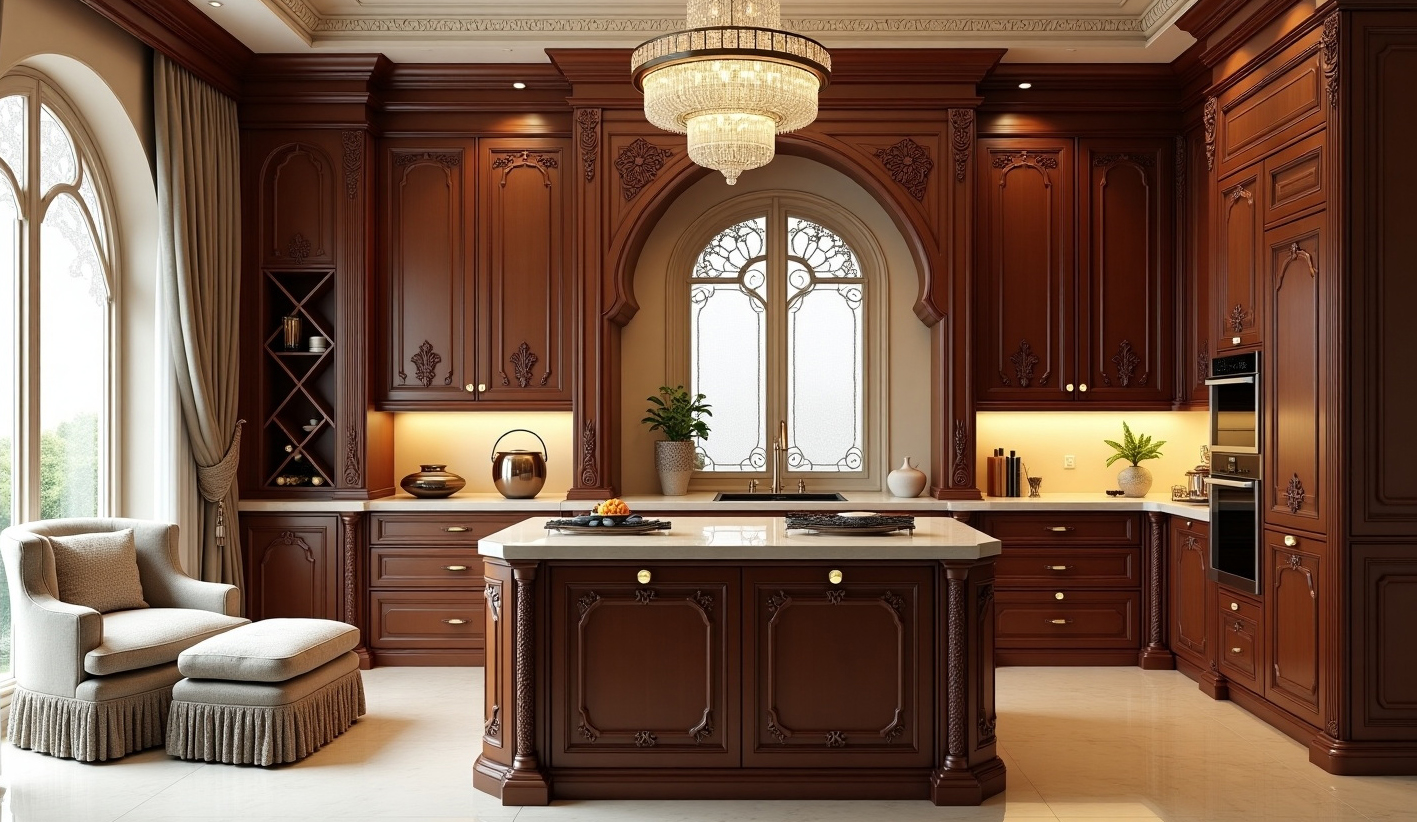
Opaque Payment Structures & Excessive Upfront Payments
It’s wise to be cautious of opaque payment structures and excessive upfront payments. A major red flag here is a contract that demands an excessively high upfront payment (e.g., over 30%-50%) or has an unreasonable payment schedule heavily favoring the China kitchen cabinets supplier. Additionally, beware of prices quoted as “EXW” (Ex Works) without clearly itemizing all-inclusive costs (FOB, shipping, duties, etc.). This can lead to the supplier losing motivation, delaying work, or lowering quality once they’ve received most of their payment. Or, worse, they could disappear. You may also face unexpected shipping and customs charges if not properly itemized. To protect yourself, negotiating a balanced, milestone-based payment schedule is advisable. A small deposit, followed by payments tied to clear progress points (e.g., material procurement, production start, partial shipment, final installation) is often a good approach. Crucially, it’s wise to always retain a significant final payment (10%-20%) until after successful delivery, complete installation, and your final acceptance. Insisting on an “All-inclusive final price” clearly stating all costs, or a meticulously detailed breakdown of EXW/FOB components, can offer greater peace of mind.
Vague Timelines & Lack of Delay Penalties
Vague timelines and a lack of delay penalties are another common pitfall. If the contract uses ambiguous terms like “approximately” or “estimated” for production and installation dates, lacking clear deadlines or penalties for supplier delays, you face the potential risk of indefinite project delays that can derail your entire renovation schedule, incurring additional costs like temporary accommodation or lost income. To protect yourself, demand precise dates for production completion, shipping, and installation start/end. Most importantly, include specific penalty clauses for supplier delays (e.g., a daily or weekly percentage of the total contract value). Ensure these penalties are substantial enough to act as a real deterrent.
Have a project in mind? Send a message.
Get the catalog for free
High Change Order Fees & Complex Processes
Project changes are inevitable—but the cost shouldn’t be.A red flag is a contract that imposes exorbitant fees for even minor design or material changes, or where the change order process is excessively cumbersome and opaque. This puts you at potential risk of significant budget overruns or being forced to settle for a suboptimal design to avoid additional, crippling costs. To protect yourself, understanding the cost of changes upfront is highly recommended. Negotiate for a reasonable number of free revisions or a cap on change order fees. Any change must be documented in a written change order, signed by both parties.
Unclear Defect Liability & Warranty Limitations
Unclear defect liability and warranty limitations are also important. If the contract vaguely defines product defects, lacks a clear warranty scope, duration, or claims process, or includes numerous exclusions (e.g., “normal wear and tear,” “misuse,” “environmental factors”), you face the potential risk that if defects arise, the supplier might dispute responsibility, leaving you to pay for repairs or replacements out of your own pocket. To protect yourself, ensure the warranty includes cabinetry structure, finish layers, and hardware systems. Keep detailed photos before and after installation to support future claims.
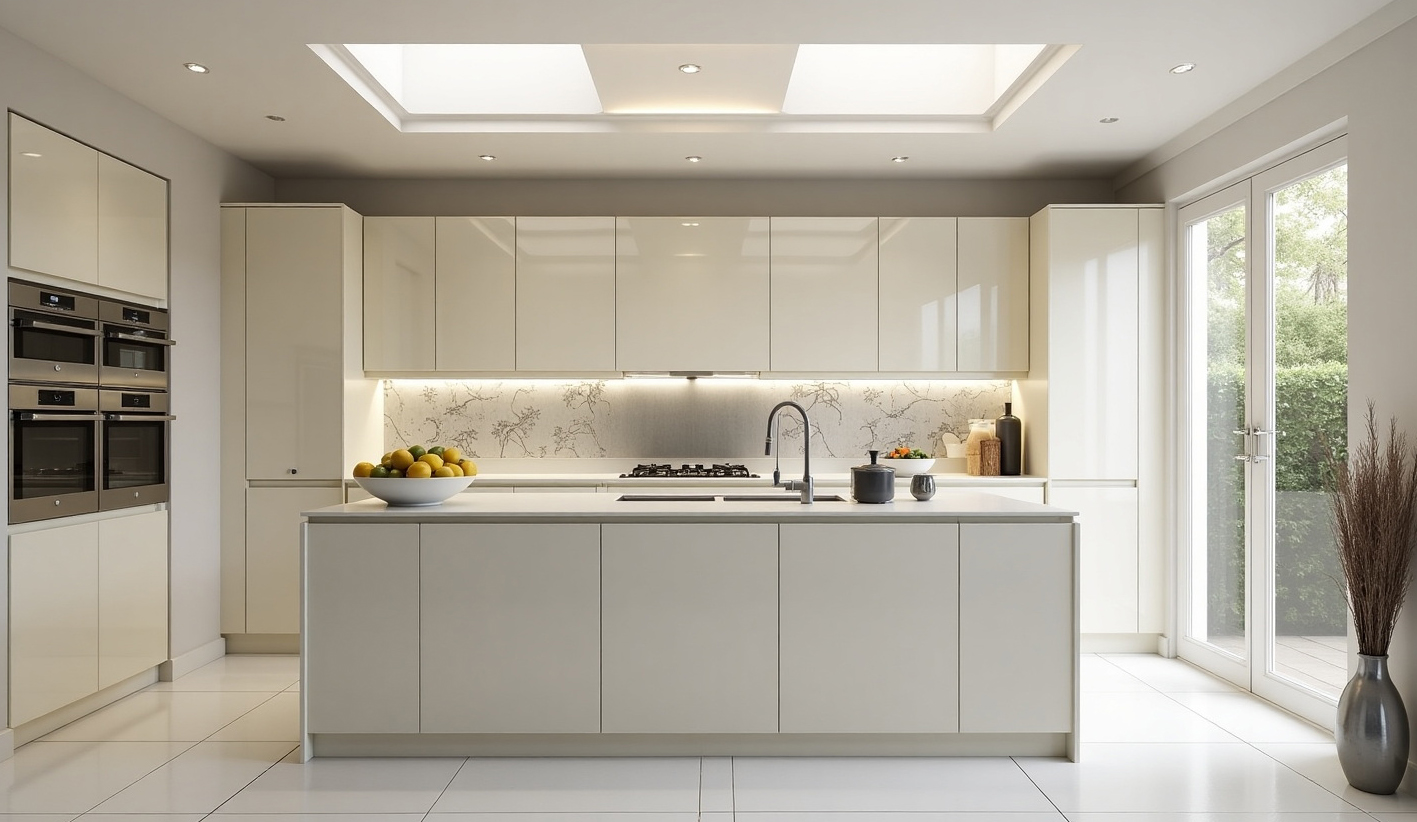
Intellectual Property & Image Rights Clauses
Please be aware of intellectual property and image rights clauses. A red flag here is a contract stating that design drawing copyrights belong solely to the custom kitchen cabinet factory, or granting them permission to use photos of your kitchen for promotional purposes without your explicit consent. This means you might be unable to use the design drawings for other purposes, or your private kitchen photos could be used publicly without your knowledge. To protect yourself, if privacy or design reuse matters to you, making this clear upfront and restricting unauthorized image usage or reproduction rights is a good idea. Understanding the limitations on using the design drawings for other purposes is also important.
Absence of Effective Dispute Resolution
Finally, the absence of effective dispute resolution is a critical red flag. If the contract lacks a clear mechanism for resolving disputes, or the stipulated methods heavily favor the supplier (e.g., requiring arbitration in China, under Chinese law, which can be challenging for international buyers), then should a disagreement arise, you might face a lengthy, expensive legal battle in an unfavorable jurisdiction. To protect yourself, negotiating for neutral arbitration (e.g., Singapore or HKIAC) and always requesting bilingual contract versions to ensure mutual understanding can be highly advantageous.
Key Steps Before Signing
Before signing anything, take these crucial steps. First, read every word (slowly!). Don’t rush; take your time to understand every single clause, especially the “fine print.” Second, ask, ask, ask (then get it in writing!). If anything is unclear or feels off, ask questions, and demand all clarifications and agreements in writing—verbal promises are often legally worthless. Third, document everything. Any oral commitments, additional agreements, or changes must be written into the contract or an addendum and signed by both parties. Photographs of site conditions before and after installation are invaluable. Fourth, seek professional guidance. For significant investments, consider having a lawyer or an experienced renovation consultant review the document; they can spot hidden clauses you might miss. Fifth, verify supplier credibility. Before signing, conduct thorough due diligence; check references, read reviews, and examine their past project portfolio. Sixth, negotiate (don’t be afraid!). Remember, contracts are negotiable; don’t hesitate to propose revisions that better protect your interests. Lastly, don’t be pressured. If a supplier pressures you to sign quickly, it’s a major red flag; a reputable company will give you ample time to review.
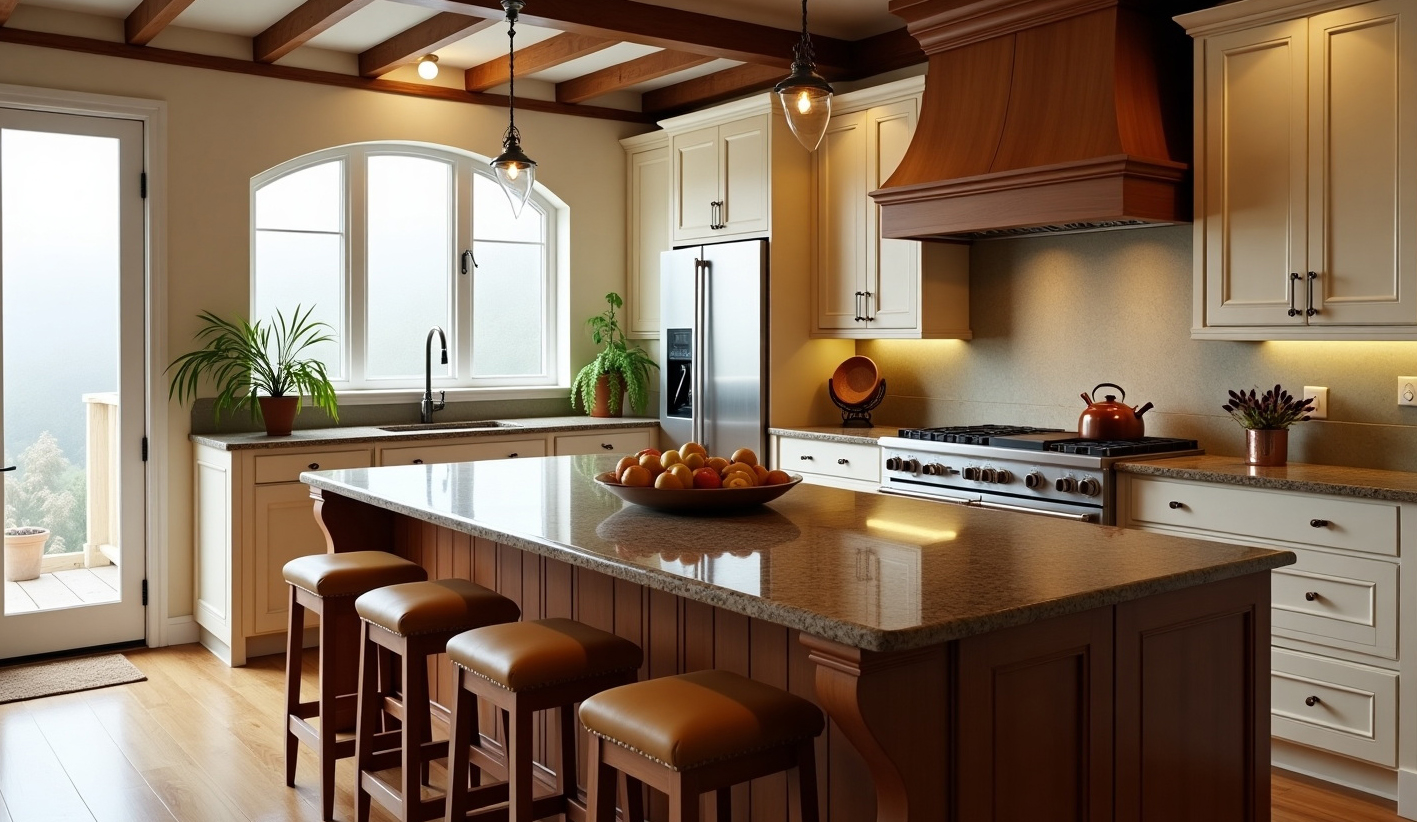
Why Choose NextHome Furnishing?
All in all, your custom kitchen cabinet contract isn’t just a formal document—it’s your primary line of defense. By reading carefully, asking smart questions, documenting every agreement, and working with transparent, experienced suppliers, you protect your renovation investment and your peace of mind.
At Nexthome Furnishing, we’ve helped hundreds of global clients avoid these risks. As a trusted China kitchen cabinets supplier with over 10 years of experience, we specialize in delivering high-quality custom kitchen cabinets backed by precise design, transparent contracts, and full post-sale support. From style consultation to site measurement, sample confirmation to export packaging, we handle every detail professionally. If you’re looking for a kitchen cabinet manufacturer in China who knows how to speak your language—both literally and contractually—NextHome Furnishing is ready to support you.
Contact NextHome Now!
We are here to help you with your business needs. We have a team of experts who are always eager to help you.



